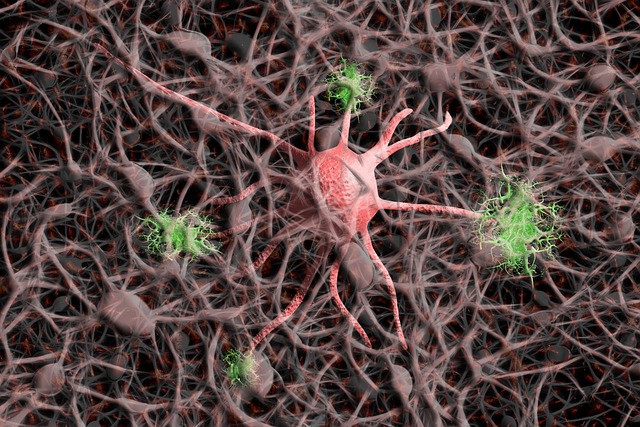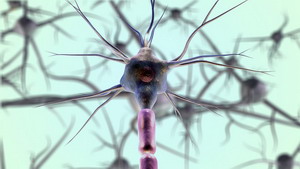 Do you have nerve issues? Do some of them not work right? If so, then you likely have neuropathy. Really, the word neuropathy means pathology of the nerve. Generally, when doctors talk about neuropathy, they are referring to the nerves that run all over the body, and not the brain and spinal cord. These are called peripheral nerves. Over 30 million people in the US have neuropathy. Symptoms are sometimes reversible, but more commonly are permanent. What types of symptoms are we talking about?
Do you have nerve issues? Do some of them not work right? If so, then you likely have neuropathy. Really, the word neuropathy means pathology of the nerve. Generally, when doctors talk about neuropathy, they are referring to the nerves that run all over the body, and not the brain and spinal cord. These are called peripheral nerves. Over 30 million people in the US have neuropathy. Symptoms are sometimes reversible, but more commonly are permanent. What types of symptoms are we talking about?
Tingling, prickling, or burning sensations
Numbness anywhere
Pain without apparent cause
Muscle weakness or wasting
Hypersensitive to touch
Paralysis
Loss of bladder or bowel function
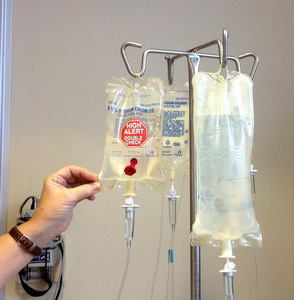 As you can see, neuropathy can happen about anywhere in the body, and it can happen for lots of different reasons. Probably the two most common reasons are blood sugar problems, like diabetes, and a consequence of certain medications, particularly chemotherapy for cancer. As you can see from the symptom list, neuropathy can affect both the nerves coming from the brain telling the body to do various things like move or digest. So, it can affect both processes that we consciously choose to do and the nerves that control the unconscious processes in our body. It can also affect the sensory nerves from the body to the brain that let you know what you are feeling in your body. Let’s look a little more deeply at the causes of neuropathy.
As you can see, neuropathy can happen about anywhere in the body, and it can happen for lots of different reasons. Probably the two most common reasons are blood sugar problems, like diabetes, and a consequence of certain medications, particularly chemotherapy for cancer. As you can see from the symptom list, neuropathy can affect both the nerves coming from the brain telling the body to do various things like move or digest. So, it can affect both processes that we consciously choose to do and the nerves that control the unconscious processes in our body. It can also affect the sensory nerves from the body to the brain that let you know what you are feeling in your body. Let’s look a little more deeply at the causes of neuropathy.
 About 60% of the diagnosed cases of neuropathy come down to too much sugar in the blood, which we see in diabetes and metabolic syndrome. The process is chemically the same as what happens to meat when you barbecue it with a sauce full of sugar. This browning reaction is called a Mallard reaction. The heat of the body is much lower than in a grill, but the same reaction still happens, just much slower. The sugar binds to the protein in the nerves and blood vessel walls turning them into meat candy which no longer works to do what it is supposed to do. As you might guess, when a nerve gets turned into baby back ribs, it doesn’t work right anymore. Instead, it goes numb or screams in pain. This process is given the name glycation and the ‘meat candy’ formed is called an AGE, an Advanced Glycation Endproduct. The name is funny because this process is one of the basic causes of aging. We all do this to some degree.
About 60% of the diagnosed cases of neuropathy come down to too much sugar in the blood, which we see in diabetes and metabolic syndrome. The process is chemically the same as what happens to meat when you barbecue it with a sauce full of sugar. This browning reaction is called a Mallard reaction. The heat of the body is much lower than in a grill, but the same reaction still happens, just much slower. The sugar binds to the protein in the nerves and blood vessel walls turning them into meat candy which no longer works to do what it is supposed to do. As you might guess, when a nerve gets turned into baby back ribs, it doesn’t work right anymore. Instead, it goes numb or screams in pain. This process is given the name glycation and the ‘meat candy’ formed is called an AGE, an Advanced Glycation Endproduct. The name is funny because this process is one of the basic causes of aging. We all do this to some degree.
 As far as cancer drugs go, what can you say? They are terribly toxic and so they have toxic side effects. While they are supposed to be poisoning the cancer cells, some of them get around and poison nerve cells as well. Cancer drugs are not the only toxins that will cause neuropathy. Certain heavy metals cause nerve damage. Mercury is well known for causing nerve damage, which makes you wonder why we have been using it to repair our teeth for the last hundred years. Fillings only rate second on the list for mercury exposure sources. Eating fish is actually the worst source. Why do fish have all this mercury? Human industrial pollution over the last few hundred years has poisoned the ocean. Currently, the worst source is coal burning in power plants. Here is a list of the mercury levels in various seafood. Mercury Levels in Commercial Fish and Shellfish (1990-2012)
As far as cancer drugs go, what can you say? They are terribly toxic and so they have toxic side effects. While they are supposed to be poisoning the cancer cells, some of them get around and poison nerve cells as well. Cancer drugs are not the only toxins that will cause neuropathy. Certain heavy metals cause nerve damage. Mercury is well known for causing nerve damage, which makes you wonder why we have been using it to repair our teeth for the last hundred years. Fillings only rate second on the list for mercury exposure sources. Eating fish is actually the worst source. Why do fish have all this mercury? Human industrial pollution over the last few hundred years has poisoned the ocean. Currently, the worst source is coal burning in power plants. Here is a list of the mercury levels in various seafood. Mercury Levels in Commercial Fish and Shellfish (1990-2012)
 Arsenic is another nerve killer. Everybody knows arsenic is poisonous. That is why it has been used in pesticides for decades. Much of it is now in the soil forever and gets sucked up into plants, like rice. They also feed arsenic to chickens to eliminate parasites and enhance growth rates. Yes, it can then get into us. And how about that “organic” chicken manure fertilizer you bought for your organic vegetable garden? A lot of that arsenic comes right out the other end. Arsenic particularly likes to create pain-causing neuropathy, typically starting in the feet and working its way up.
Arsenic is another nerve killer. Everybody knows arsenic is poisonous. That is why it has been used in pesticides for decades. Much of it is now in the soil forever and gets sucked up into plants, like rice. They also feed arsenic to chickens to eliminate parasites and enhance growth rates. Yes, it can then get into us. And how about that “organic” chicken manure fertilizer you bought for your organic vegetable garden? A lot of that arsenic comes right out the other end. Arsenic particularly likes to create pain-causing neuropathy, typically starting in the feet and working its way up.
 Although it sounds like old news, lead is still a problem in causing neuropathy. It is still around in all sorts of places. One patient of mine described the amount of precaution they have to take when practicing target shooting at their favorite gun range. Lead dust is a serious problem in such environments.
Although it sounds like old news, lead is still a problem in causing neuropathy. It is still around in all sorts of places. One patient of mine described the amount of precaution they have to take when practicing target shooting at their favorite gun range. Lead dust is a serious problem in such environments.
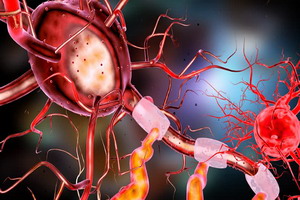 How about the other end of the spectrum, nutrient deficiencies? The two biggest ones I want to highlight are B12 and copper deficiencies. B12 is a very common deficiency affecting 10 to 15% of folks over the age of 60. Without enough B12, the protective myelin sheath around the nerves is damaged causing the nerves to misfire. This is the biggest deficiency in folks choosing a plant-based diet as there are no plant sources of B12 usable by humans. B12 deficiency can also be caused by the diabetes medication Metformin. B12 is found in meat, fish, fowl, eggs, and dairy. Most folks associate B12 usage with increases in energy. Copper deficiency also causes neuropathy, although this is a rarer condition. Copper opposes iron, so just taking copper supplements is a bad idea without checking your ratio of copper to iron.
How about the other end of the spectrum, nutrient deficiencies? The two biggest ones I want to highlight are B12 and copper deficiencies. B12 is a very common deficiency affecting 10 to 15% of folks over the age of 60. Without enough B12, the protective myelin sheath around the nerves is damaged causing the nerves to misfire. This is the biggest deficiency in folks choosing a plant-based diet as there are no plant sources of B12 usable by humans. B12 deficiency can also be caused by the diabetes medication Metformin. B12 is found in meat, fish, fowl, eggs, and dairy. Most folks associate B12 usage with increases in energy. Copper deficiency also causes neuropathy, although this is a rarer condition. Copper opposes iron, so just taking copper supplements is a bad idea without checking your ratio of copper to iron.
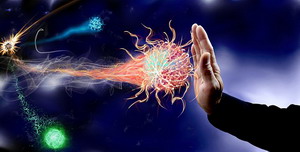 Another source of neuropathy is an autoimmune disease. This is a challenging arena as medicine has no answers for autoimmune diseases yet. It seems to start in the gut as increased permeability of the gut lining which allows incompletely digested proteins to get into the bloodstream where the immune system attacks them as though they were an invading organism. Due to something called molecular mimicry, where parts of the food protein look like proteins in various parts of our body, our immune system then starts attacking our own cells. Well, when the immune system attacks our nerves, we get neuropathy. Nobody really knows how common this is as autoimmune testing is almost non-existent for more than lupus, psoriasis, rheumatoid, Hashimoto’s, and MS. There are hundreds of types of autoimmune conditions. Around 23% of neuropathy is diagnosed as an unknown cause. Much of this is probably auto-immune.
Another source of neuropathy is an autoimmune disease. This is a challenging arena as medicine has no answers for autoimmune diseases yet. It seems to start in the gut as increased permeability of the gut lining which allows incompletely digested proteins to get into the bloodstream where the immune system attacks them as though they were an invading organism. Due to something called molecular mimicry, where parts of the food protein look like proteins in various parts of our body, our immune system then starts attacking our own cells. Well, when the immune system attacks our nerves, we get neuropathy. Nobody really knows how common this is as autoimmune testing is almost non-existent for more than lupus, psoriasis, rheumatoid, Hashimoto’s, and MS. There are hundreds of types of autoimmune conditions. Around 23% of neuropathy is diagnosed as an unknown cause. Much of this is probably auto-immune.
 So what can we do about neuropathy? Can it get better? The first step is to deal with the cause. If the blood sugar is too high, stop eating carbohydrates! That’s right, not only stop eating sugar but bread products, rice, corn, oats, legumes, potatoes, and all the starches. Completely cut them out until your blood sugar is back to normal. Typically blood sugar damage does not get better, but hopefully, you can stop the progression. As far as heavy metals go, don’t eat fish that are high in mercury. Detoxing from heavy metals is a whole subject for another newsletter. Go ahead and take a sublingual B12 supplement regularly. It won’t hurt you and will only help if needed. Auto-immune healing begins with healing the gut. All grains and dairy must be avoided as well as toxic seed oils and sugar. Improving digestion is critical for recovery. Stomach acid must be working as well as enzyme production and bile production. Reducing stress is frequently the key to resolving auto-immune gut conditions. Some folks find the quickest route to healing the gut is to do a 90-day ruminant animal carnivore diet as this avoids all the issues with food lectins from plants tearing up the gut.
So what can we do about neuropathy? Can it get better? The first step is to deal with the cause. If the blood sugar is too high, stop eating carbohydrates! That’s right, not only stop eating sugar but bread products, rice, corn, oats, legumes, potatoes, and all the starches. Completely cut them out until your blood sugar is back to normal. Typically blood sugar damage does not get better, but hopefully, you can stop the progression. As far as heavy metals go, don’t eat fish that are high in mercury. Detoxing from heavy metals is a whole subject for another newsletter. Go ahead and take a sublingual B12 supplement regularly. It won’t hurt you and will only help if needed. Auto-immune healing begins with healing the gut. All grains and dairy must be avoided as well as toxic seed oils and sugar. Improving digestion is critical for recovery. Stomach acid must be working as well as enzyme production and bile production. Reducing stress is frequently the key to resolving auto-immune gut conditions. Some folks find the quickest route to healing the gut is to do a 90-day ruminant animal carnivore diet as this avoids all the issues with food lectins from plants tearing up the gut.
 Are there any supplements that have been found to help with neuropathy? Basically, there are three compounds that have been found to be helpful – alpha lipoic acid, acetyl-l-carnitine, and carnosine. Alpha lipoic acid is a super anti-oxidant that helps put out the fire that fuels the AGE damage. Acetyl-l-carnitine is a compound that transports fatty acids into the energy centers of your cells, the mitochondria, to provide energy for healing without sugar. And carnosine actually is able to reverse some of the damage caused by sugar binding to proteins forming AGEs.
Are there any supplements that have been found to help with neuropathy? Basically, there are three compounds that have been found to be helpful – alpha lipoic acid, acetyl-l-carnitine, and carnosine. Alpha lipoic acid is a super anti-oxidant that helps put out the fire that fuels the AGE damage. Acetyl-l-carnitine is a compound that transports fatty acids into the energy centers of your cells, the mitochondria, to provide energy for healing without sugar. And carnosine actually is able to reverse some of the damage caused by sugar binding to proteins forming AGEs.
 Neuropathy is not any fun in any of its forms. The goal is to stop it in its tracks before any more damage occurs. This is a challenge, but it can be done!
Neuropathy is not any fun in any of its forms. The goal is to stop it in its tracks before any more damage occurs. This is a challenge, but it can be done!
Take care,
David
